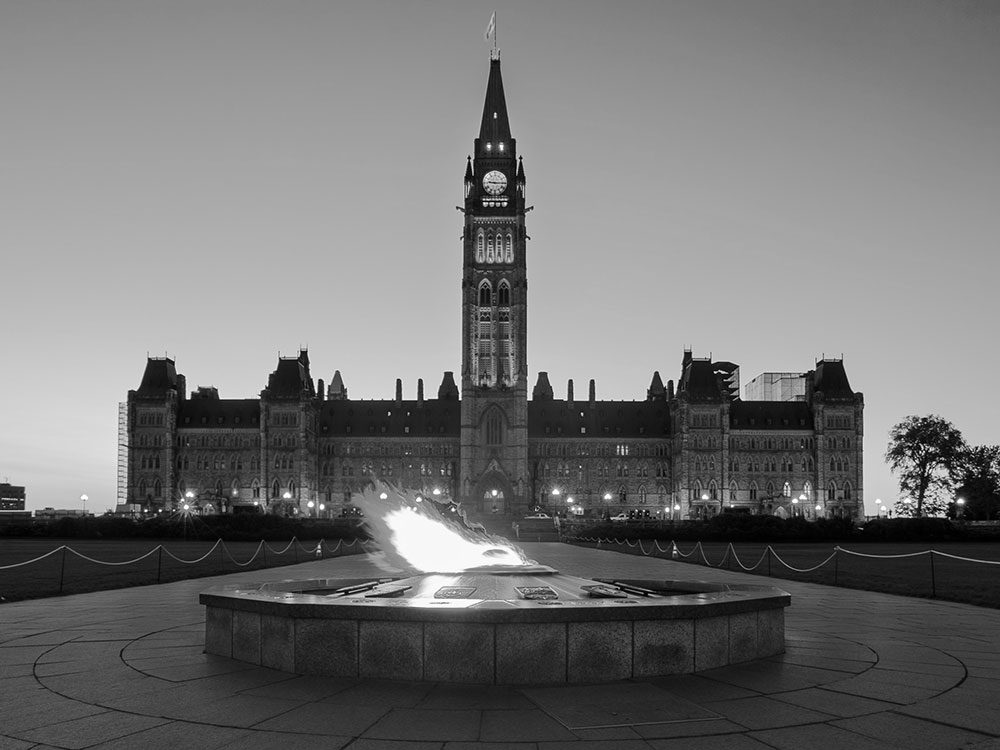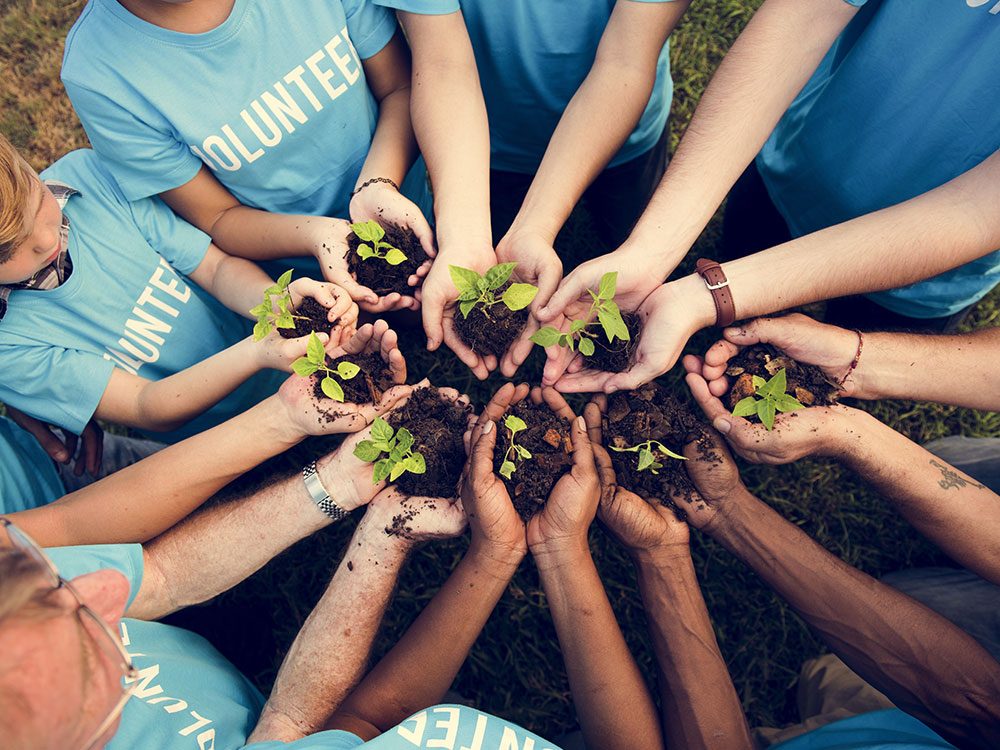
How can we change the world by continuing to care?
As an undergraduate in his early 20s, Christopher McKinnon often attended political protests. In 1999 and the early 2000s, he went to Toronto rallies in support of anti-globalization actions worldwide, such as the World Trade Organization protests in Seattle. Instead of being filled with hope by these actions, however, after a few years he became skeptical when he saw what little progress was being made both in the political sphere and within his own communities.
“I realized people weren’t really approaching the issues with a deep level of analysis; they were just arguing and fighting,” he says. “I felt powerless and thought, ‘I can’t possibly change the world. It’s a mess.’”
It’s understandable that one could view humanity as being on an irreversibly wrong path. News headlines are dominated by school shootings, accelerated climate change, threats to democratic institutions, economic and racial inequality, and gridlocked government.
If anything is guaranteed to make things worse, however, it’s checking out and giving up. Thankfully, there are ways to keep caring and even maintain a positive outlook. In fact, here are five things you can do right now to change the world.

1. Unlock your critical thinking
Gallup surveys in the United States show that trust in institutions such as government and the medical system has been declining precipitously since the 1970s. While our country hasn’t seen as much of a drop, in 2014 only 38 per cent of Canadians surveyed by Statistics Canada expressed confidence in the federal Parliament. (Here’s the one thing you need to earn someone’s trust, according to an FBI agent.)
But as McKinnon’s story shows, gloominess about the state of the world can actually be a sign that you have—or had—high standards for something you care about and you’ve become discouraged. According to David Mazella, author of 2007’s The Making of Modern Cynicism, the term “cynic” was used in exactly this way in ancient Greece, where a person was described as such if they believed in “the autonomy of the self and the ability to be moral no matter how corrupt things become around you.”
Feeling cynical, Mazella argues, is useful if it allows us to identify where a situation isn’t aligned with our values—especially if it “helps you slow down to see if you can verify and believe what you’re getting told,” he says. The next step is to avoid letting this new awareness get you down so much that you’re paralyzed. Instead, you should recognize it as the first move towards solving the problem. Want to develop a more positive outlook? Check out the 10 things optimistic people do every day.

2. Focus on the positive
Some who succumb to negative expectations do so because they think that constantly preparing for the worst insulates them against it. Research has shown that the opposite may be true, however. In 2014, a University of Eastern Finland study reported that agreeing with statements such as “it’s safer to trust nobody” correlated with being almost three times more likely to develop dementia. And two years later, researchers at the University of Cologne in Germany discovered that people earned 230 euros less per month after nine years of holding cynical views.
“Focusing on bad news can become a self-fulfilling prophecy,” agrees David Richard Boyd, author of 2015’s The Optimistic Environmentalist. “It really does make your health worse, and lead to less success and taking less action.” Working in Canadian environmental law for over two decades had left Boyd depressed and hardened about the planet’s future. But with the help of his daughter, he discovered the benefit of deliberately seeking good news.
Five years ago, the then-seven-year-old Meredith came off the school bus crying, saying she had learned that global warming was causing certain species—including her favourite, polar bears—to go extinct. “To see your own child in tears because of bad news about the environment is like being stabbed in the chest with a dull knife,” says Boyd. He told her that while that was true, some species, such as sea otters, had been brought back from the brink of extinction by conservation efforts.
From there, he began what he calls “a real journey of hope,” seeking similarly inspiring stories that included improvements outside his field—from the rise in literacy worldwide to the decreasing global maternal mortality rate. The unheralded boom in green energy affected him the most. “I absolutely think we’re going to make it,” he says. “I think we’re in the early stages of turning the ship around.”
While news organizations tend to lead with the bad, balance can be found if you look for it. “The great thing about optimism is it’s not something you’re born with or without,” says Boyd. “It can be cultivated.” Don’t miss these 13 things you should know about optimism.

3. Be the change
One easy way to escape the negative news feedback loop is to volunteer in your community. Doing good, even on a small scale, can dramatically transform your outlook. (Here are six ways to give back—without opening your wallet.)
Now in his 30s, McKinnon says his own about-face began about 13 years ago when he was managing volunteers at the Toronto International Film Festival. There, he witnessed his charges finding meaning in helping others, and ended up doing so himself. When he taught one elderly volunteer how to use the Internet and set up her first email account, she later came to the office proudly showing off pictures of her grandchildren that had been sent to her. “I found value in realizing I could be helpful,” he says. “It didn’t need to be big. Even the small things could be powerful.”
Seeking more ways to improve his world, McKinnon joined one of the working committees involved in the Green Line, a Toronto-based community outreach initiative that aims to better use green urban spaces. As part of that effort, he became the enthusiastic organizer of an annual November 1st pumpkin parade, at which kids compete to see who carved the best jack-o’-lantern and local businesses hand out prizes. “Families come out and people meet and talk to each other,” he says. “The conversations they have are often about how we can make our neighbourhood better.” (Don’t miss the inspiring story of how one Facebook group is making Toronto a safer place for everyone.)
These days, McKinnon even has a more optimistic opinion of the politicians he once distrusted. “People in power are just like us,” he says. “There’s a capacity inside of everyone to be good and make a difference, to look around you and say, ‘The world is not the way that it should be. I can be a part of that change.’”
Feel like you have no time to make a difference? Here are 30 simple acts of kindness you can do in two minutes or less.